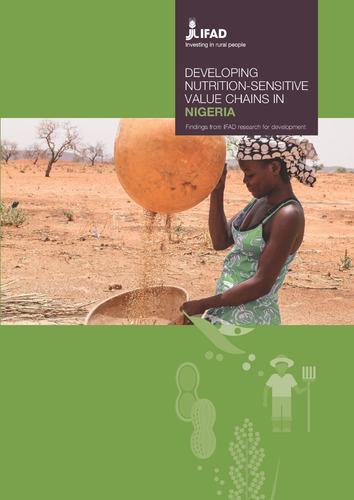Developing nutrition-sensitive value chains in Nigeria
With funding from the German and Canadian governments, IFAD recently carried out a set of studies in Nigeria
and Indonesia to determine how to design nutrition-sensitive value chain (NSVC) projects for smallholders.
Such projects seek to shape the development of value chains for nutritious commodities in ways that are likely to address nutrition problems.
In Nigeria, the studies were undertaken in the northern states of Katsina and Sokoto, where the IFAD-funded Climate Change Adaptation and Agribusiness Support Programme (CASP) is being implemented by the Federal Ministry of Agriculture and Rural Development of Nigeria. The studies showed that cowpea, groundnut, soybean, millet and sorghum could contribute to improving
nutrition as well as livelihoods for smallholders. The studies revealed that the main nutrition problems for smallholders in the project areas include diets with inadequate energy, micronutrient and protein consumption. Such diets are known to contribute to high levels of wasting and stunting in children and undernutrition in women. Problems associated with generally poor diets are compounded by seasonal fluctuations. Promotion of the production and consumption of the five crops identified above could help improve diets and lay the foundations for a more nutritious local food system that also promotes women’s empowerment and resilience in the face of climate change. Importantly, these crops also make business sense for smallholders and value chain development.

